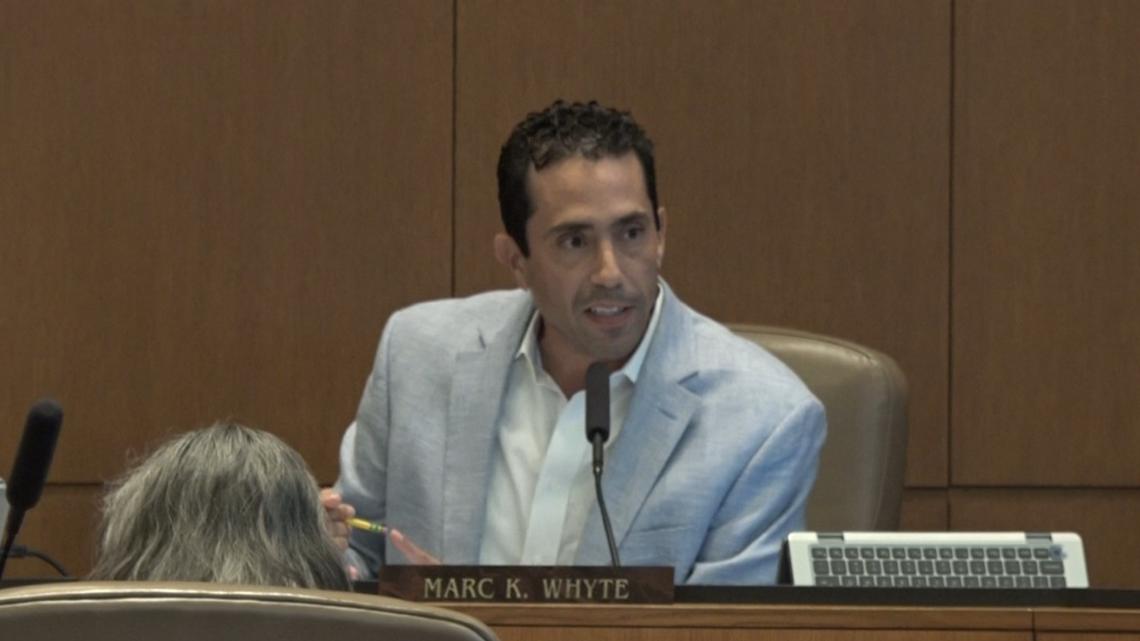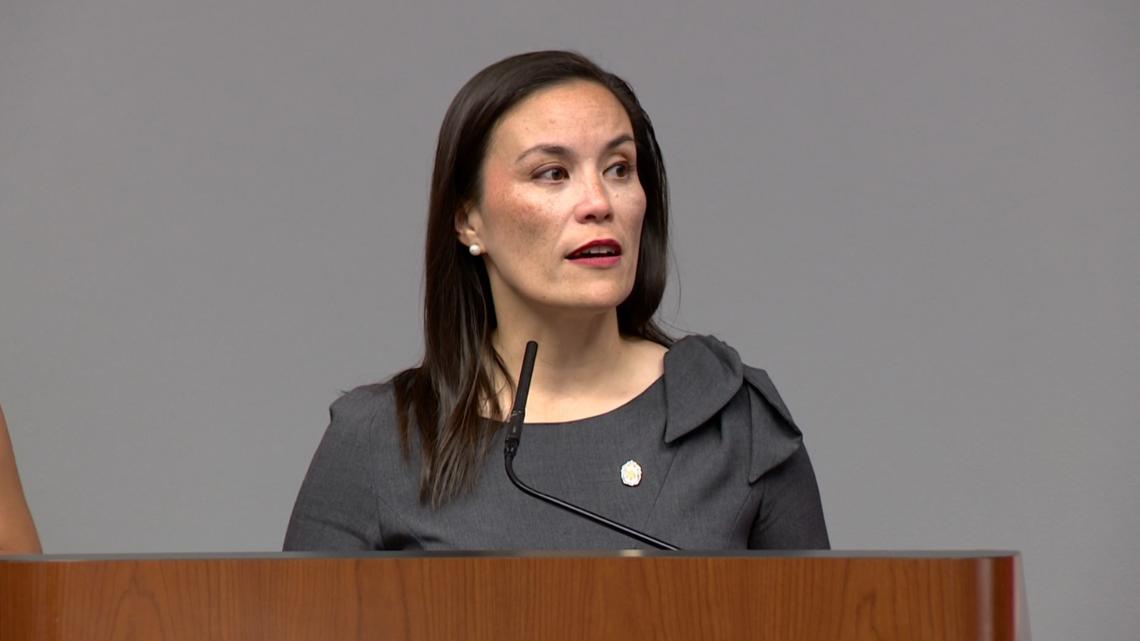The Friday meeting will address backlash Mayor Jones has received from some council members who wanted changes to the CCR process discussed publicly.
SAN ANTONIO — San Antonio City Council members frustrated with what they called unnecessary and “vaguely written” changes Mayor Gina Ortiz Jones said she was making to the Council Consideration Request process got their wish: a special meeting of council to discuss the changes and existing ordinance they impact.
Council members Teri Castillo (District 5), Marina Alderete Gavito (District 7) and Marc Whyte (District 10) submitted a joint memo last Thursday to try and force the special meeting, providing the open forum they say any changes to the Council Consideration Request (CCR) procedures should be discussed in.
The meeting is set for 4:30 p.m. Friday in City Hall. The lone item in the public portion of the agenda: “City Council discussion on the Council Consideration Request process.”
CCRs are the first step to determining which initiatives spearheaded by council members get to go before leaders for public discussion and – potentially – eventual implementation. Recent CCRs spearheaded by City Council have resulted in stronger penalties for owners of dangerous dogs; prohibited vape shops from operating near schools; streamlined utility notice for residents at risk of water disconnections; and cleared up city rules regarding the relocation of exotic birds.
Whyte led an effort to streamline the CCR process in 2024, resulting in the existing ordinance. According to those rules, council members submitting CCRs were required to gather supporting signatures before submitting to the city clerk while sending another copy to the city manager. From there, it would then go to the Governance Committee, which deliberates and decides whether to send a CCR to full council.


In a memo sent to council members and key staff on July 14, however, San Antonio’s newly elected mayor added steps to the process.
Jones wrote that City Council members sponsoring a new CCR must now “coordinate with the mayor’s chief of staff” before obtaining signatures from other council members who want to see the proposal considered. She also stipulated that council members will now have to get their policy proposal reviewed and initiated by the city manager and city attorney early on.
Only after getting those additional sign-offs can they submit their CCR to the city clerk.
“Not signing off on it means the policy dies before the public gets to learn why a policy is not moving forward,” Castillo said. “I believe that, for the sake of good governance, policy and principle, that if a policy is not to move forward, it should be a public discussion.”
Jones chalked the changes up to ensuring CCRs that make it to the city clerk are already cleared of any hurdles, legal or otherwise.
“I want to make sure the City Council is spending our time wisely,” the mayor said to a reporter’s question about the proposed changes at a July 28 town hall. “The city attorney has said very clearly, and in numerous fashions, that all of those things, I can do as the mayor.”


Whyte, Castillo and Alderete Gavito saw it differently: as an attempt to unilaterally change the city ordinance which outlines existing CCR procedures.
“What we want to make sure happens is that the process in place continues and is respected because it ensures transparency,” said Whyte. “These policy proposals that are put forth in the CCRs, they need to be debated on in public. City staff – unelected city staff – and the mayor’s office should not be able to quietly kill policy proposals in the dark of night.”
Alderete Gavito called the mayor’s requirement that her chief of staff be involved before CCR submission “a risky precedent.”
“Imagine if we were to have a Republican mayor, it could mean that council members from Democratic districts would be forced to funnel their ideas through a chief of staff who may not align with their constituents’ values,” Alderete Gavito said.
The trio initially responded to the mayor about their concerns in a July 16 memo, highlighting that the current process is already orderly and efficient.
“If you wish to change the CCR procedures, we request that you go through the proper channels… and bring forth your proposed recommendations to the full council for consideration and a vote,” the council members wrote in their response.
In that memo sent July 16, Whyte, Castillo and Alderete Gavito requested that Jones schedule a meeting by Aug. 15 to discuss the changes in public. But when they said last week that “no effort has been made to discuss and work through” Jones’ proposed changes, they issued the three-signature memo—one of three ways a special City Council meeting can be called.
